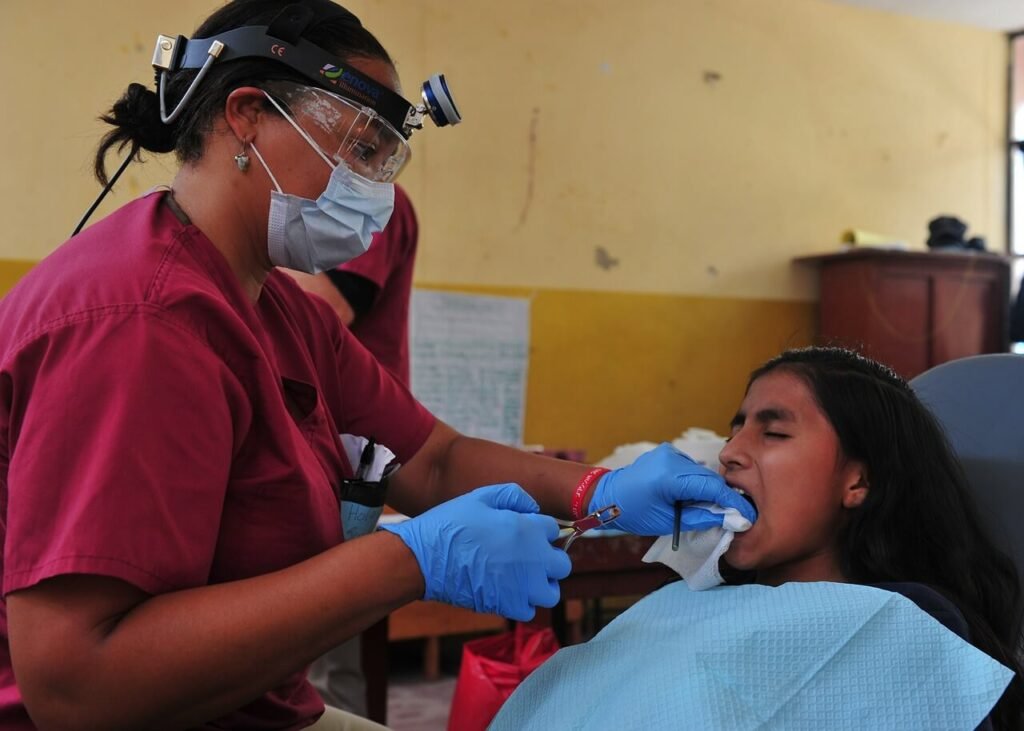Why would a dentist need to extract your tooth?
There are a few occasions when a dentist needs to pull your teeth, the main concern is that the tooth is beyond repair and none of it can be salvaged.
Here are a few common reasons for dental extraction:
- Deep and severe tooth decay
- Impacted molars
- Loosened tooth due to periodontal disease
- Teeth overcrowding
- Broken teeth
Let’s look at these issues a little more closely and see why they might require a full extraction.
Deep and severe tooth decay
The presence of deep decay impacts your tooth and infects the pulp. Your dentist or oral surgeon may suggest a root canal treatment if it’s still salvageable. But, if there is severe infection then tooth extraction may need to be performed
Impacted molars
There are instances when the gums do not erupt. This prevents the tooth from coming out. It usually happens to molars or wisdom teeth.
Teeth overcrowding
Overcrowded teeth affect your smile and your dentist extracts a tooth to correct it. Some dentists suggest the use of orthodontics for moderate cases of overcrowded teeth.
Broken teeth
Your teeth are made of bone-like tissue and the hardest substance of the body. However, it also becomes fractured. The molars are more likely to fractures/break since they are used for chewing. If a molar tooth gets fractured below the gum line, your dentist may perform a wisdom tooth extraction.
Tooth Extraction Process
Tooth extractions can be performed by a dentist or an oral surgeon. A patient will receive an injection of a local anesthetic. This will completely numb the area and decrease/or potentially get rid of the pain entirely. Depending on your situation, you may need a stronger general anesthetic. Your dentist will go over this with you prior to administering the anesthetic. During this time you should raise any concerns if you have any. You can also share your sedation preferences and the dentist will do everything they can to make the process as easy as possible.
A small amount of the gum and bone tissue that covers the tooth must be removed. Using forceps, they will grasp the tooth and remove it by wiggling it back and forth until it loosens from the jawbone ligament. A tooth might be so securely in place that they need to be removed in pieces (this is uncommon though).
After the dental extraction has been performed, the surrounding teeth may shift. This can present difficulties in chewing or the general function of your jaw. Your dentist may recommend the tooth be replaced with a dental implant.
tooth extraction: aftercare
Your dentist will give you advice on what to do after the extraction based on the specific needs of your operation. However, this is a summary of what might be expected of you to ensure proper healing of the area that was operated on.
- Place an ice pack on the side of your face near the area
- An icepack will help reduce local swelling, you should hold the icepack against your face for up to 15 minutes at a time, or as long as you feel comfortable
- Bite down on a piece of gauze
- The dentist may give you gauze to bite down on if there is any bleeding. If this is the case, change the gauze every 30 minutes or so if you are able.
- Have ample rest
- Do not participate in any intense physical activity as this may cause an unnecessary risk of damaging the area the tooth was pulled from.
- Avoid eating crunchy, hard, or sticky food.
Don’t eat this type of food after tooth extraction as it may irritate the area.
- Don’t use a straw for drinking
Avoid drinking through a straw for the time being as it means you have to suck which may loosen blood clots.
- Rinse mouth with saltwater solution after a wisdom tooth extraction
- Salt has antibacterial properties which can speed up the healing process and stave off infection.

